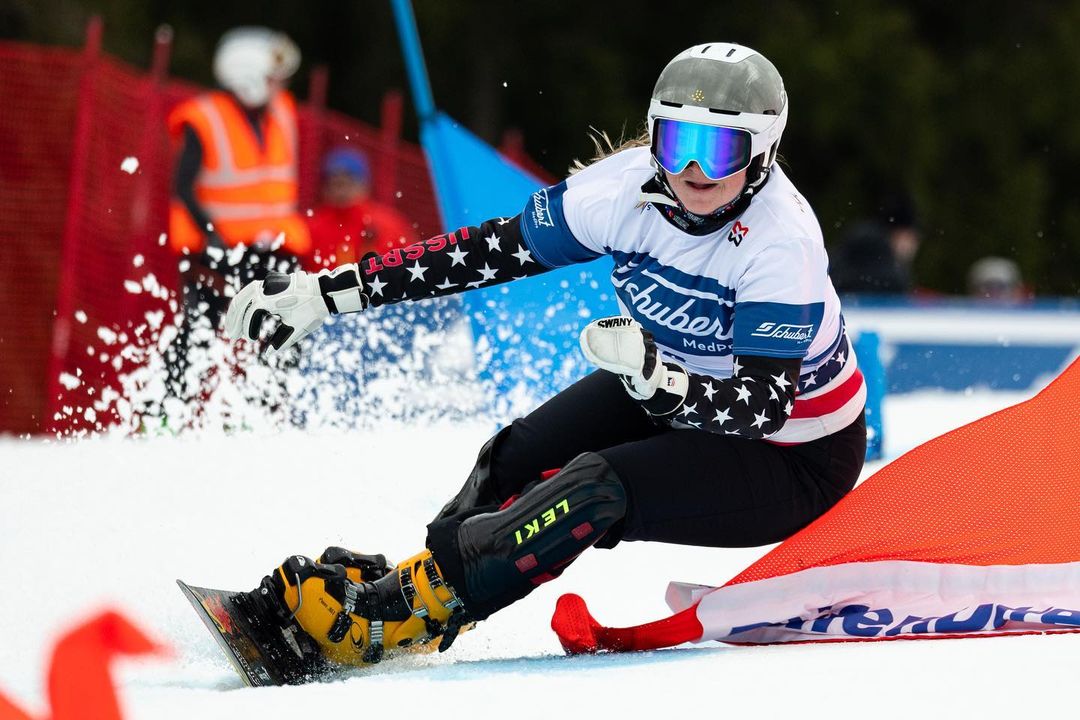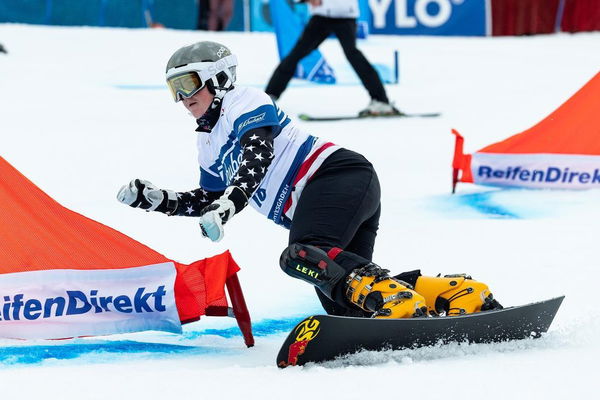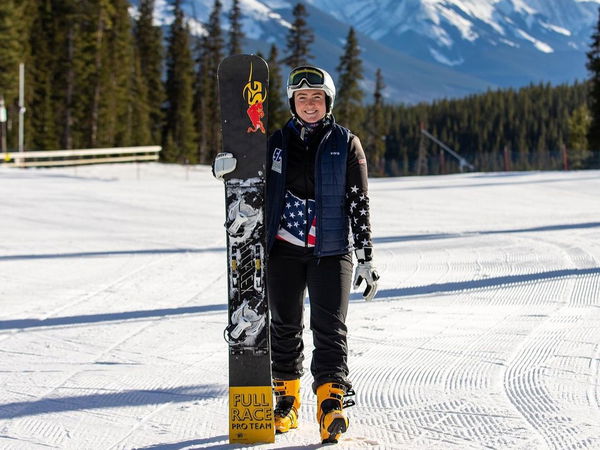

Olympic athletes and financial woes often go hand in hand. While champions like Lindsey Vonn, Shawn White, and Noah Lyles enjoy celebrity status and lucrative sponsorships, not every athlete shares that experience. One such athlete is St. Louis, Missouri-based snowboarder Lexi Bullis. She is among the many who are hustling to raise funds to support her training and competition efforts.
Watch What’s Trending Now!
During an interview with KDSN News, the Wisconsin native, opened up about her struggles to raise enough money for a plethora of expenses. “You work odd jobs throughout the summer and basically live poor,” confessed the snowboarder. However, the 2026 Italy Winter Olympics hopeful has turned into a unique business venture to support her dream.
Lexi Bullis makes and sells soap during the offseason, a skill she learned from her mother. “My mom actually started making soap when I was two years old and turned it into a small business,” Bullis told KDSN News. Now the Olympian has expanded the handmade soap business enough to earn the necessary cash. She even named her business after her passion.
ADVERTISEMENT
“I’m an alpine snowboarder. That’s the name of our discipline. So that’s how I came up with Alpine Soap Company,” said Bullis, whose stall you’ll find at the ongoing Wildwood craft festival in St. Louis. However, not all who aspire to compete in the Summer or Winter Olympics possess Bullis business skills. These athletes often have to rely on crowdfunding.

ADVERTISEMENT
Dozens of U.S. athletes have turned to GoFundMe campaigns in the months leading up to Paris 2024. Discuss thrower Veronica Fraley successfully raised $23,000, while badminton player Jennie Gai collected $22,000. Even two-time Olympian Kanak Jha resorted to GoFundMe to support his goal of becoming a three-time Olympian for Team USA’s table tennis squad.
ADVERTISEMENT
Jha even told the Associated Press that it was “financially impossible” to pursue table tennis professionally in America. While Lexi Bullis didn’t mention the numbers, she hinted that even with her growing soap business it becomes difficult to earn enough money. Most people don’t realize just how expensive things get even for “high-perfroming” athletes. However, some are trying to bring change.
The cost of participating in the Olympics and those trying to bring change
Unlike the snowboarder, Paris Olympics-qualified marathon runner Ashley Uhl-Leavitt didn’t hesitate to reveal the numbers. The track and field athlete who also had to resort to crowdfunding said athletes have to dish out $22,000 in competition fees and memberships. However, 1/4th of Olympic athletes earn below $15,000 annually.
ADVERTISEMENT
In fact, celebrity athletes like Paris Olympics gold medalist Sha’Carri Richardson have pulled out of competitions in the past due to high participation fees. Meanwhile, NCAA champions like Kyree King had to wait eight months to receive just $2,000. However, there may be hope for improvement in the near future. The 2021 NIL policy change has helped several athletes better support their sporting dreams.

ADVERTISEMENT
A handful of individuals are leading the charge for better pay in track and field. American track and field legend Michael Johnson is set to launch his Grand Slam League next year, boasting a total prize pool of over $12 million, which promises to offer athletes significantly higher payouts than any other league. Meanwhile, Reddit co-founder Alexis Ohanian is also investing in women’s track and field.
Top Stories
Jon Rahm Breaks Silence on Enduring ‘Overweight’ Jibes from American Fans: ‘It Was Rough’

Jeremiah Smith Wants to Blame OSU Unit for CFP Loss & Has Urban Meyer’s Backing

Lamar Jackson Bids Goodbye to Ravens’ Underwhelming Season After John Harbaugh’s Firing

Alex Pereira Confirms Major Tracy Cortez Relationship Status Update After Viral Marriage Proposal Clip

PGA Tour Quietly Alters One of Its Most Controversial Rules before 2026 season

Bryson DeChambeau Releases Fresh Statement on His LIV Golf Future Post Brooks Koepka’s Exit

His first event, Athlos NYC is set to become the highest-paying single event in women’s track and field on September 26. The winners will earn $60,000, plus 10% of the total ticket sales. While these may be a drop in the ocean, their success could bring widespread change. Until then, athletes like Lexi Bullis will continue to struggle to make their dreams of reaching the Olympics a reality.
ADVERTISEMENT
ADVERTISEMENT
ADVERTISEMENT
ADVERTISEMENT

